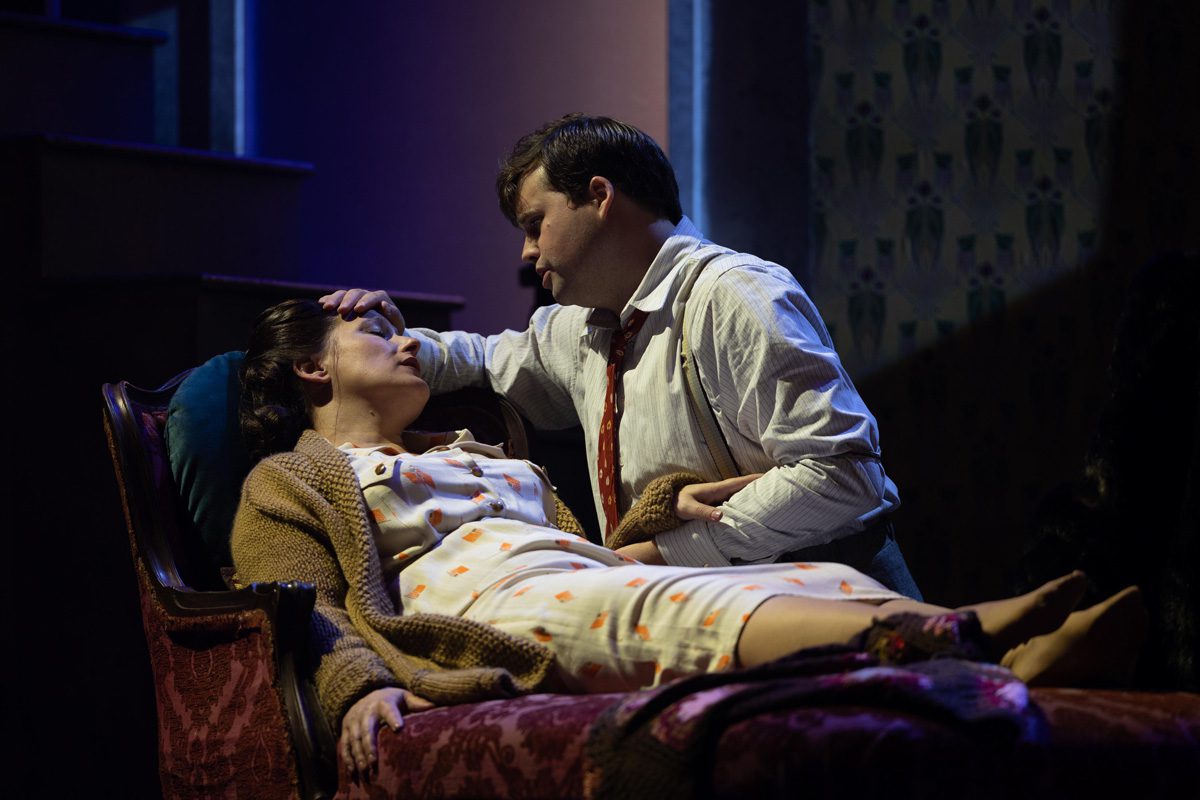Puccini’s La Bohème is a classic, even those who are not well versed in Opera, including myself, know of its stature. The narrative focuses on the life and predominantly loves of four bohemian artists. However, while there are moments of beauty this production failed to encompass me in the dramatic love story between Rodolfo (Joseph Buckmaster) and Mimi (Katie Bird).
As a classic, this production, directed by Natascha Metherel, attempts to put its own stamp on the narrative by framing the opera as a movie being filmed. This framework is established from the moment you take your seats, as the ensemble is painting the set and putting on their makeup before the show begins. In fact, the show begins with a prelude in the form of Edith Piaf’s La Foule on a speaker, while the ‘set’ for the opera is being set. This results in the ensemble being on stage for the whole of the first act, changing backdrops, bringing cameras around the actors, even some attempted comedic moments come from this, but unfortunately it distracts from the story told and the audience is unsure where they should be looking or focusing. During arias the emotion and music should have been the centre stage but instead it was diluted by the moving cameras and changing backdrops.
Additionally, there were moments, primary in the first act which attempted comedy, such as when the landlord asks for rent and ends up kicked out of the house, without payment, was lacklustre. Likewise, while Musetta (Elizabeth Karani) at the café exemplified her personality and strong mind, the drama and comedy in her encounter with her sugar daddy was hardly noticed, leaving no trace or impact.
The music is what makes an opera an opera, and with the power of these arias translation is not always needed to understand the emotion. Buckmaster sang beautifully but his voice was overwhelmed by the orchestra. Katie Bird’s Mimi was outstanding. She had a clear and rich voice. Apart from the occasional drowning of the vocals, the orchestra, conducted by George Jackson was excellent and full of drama.
The second half redeemed itself and gave me a glance of what the opera should look like. The drama, music and intimacy took over and film set was forgotten about (confirmation that it was not the best idea to begin with). It is the final scene where the intimacy and power of the opera came to life but unfortunately the build-up leading to the final act cast a long shadow on what could have been an excellent production.

